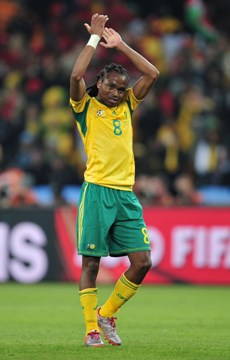Today is the one week anniversary of the death of Coach John Wooden. I am amazed–and thrilled–that the accolades and chat about him continues to thrive throughout the media universe we live in.
Somehow, this man of Christian faith, family and work effort has become more of an icon in his post-basketball career than he was as the most successful NCAA Championship coach of all time. And he was at it longer, too! During the decades when so many athletes and coaches became known for everything from steroids to selfishness to stupid off-court and off-field antics, it is so inspiring and redemptive to see the attention Coach Wooden has received, even 35 years after his last basketball victory.
One of the fun aspects of being in my business is the chance to meet up close and personal with some of the finest people on the planet, and Coach Wooden was among the finest of those. Just a few years ago, I was able to sit with him for several hours in his San Fernando Valley apartment along with some of my closest friends and family. He told stories with the vigor and spryness of a younger man. His memory was flawless. He still called Kareem Abdul-Jabbar “Lewis.” He toured us into his bedroom where he still kept pictures of his beloved Nell on her side of the bed, as well as love letters. And among the stories he told was one that had a dramatic impact on me in my faith journey.
Few people know–or remember–that Coach Wooden was at UCLA from 1948 to 1964 before he won his first championship. I asked him what the difference had been: 15 seasons at the school with no championships and then 10 in the next 12 years. And he said two wonderfully humble and assertive things.
“Well you know, Doug,” he said through his dipped chin as if to strike an instructive pose, “we won a lot of games in those first 15 years, including 10 Pacific Coast Championships. So we were not without success”
He has said it in a way rarely known of today: confident without being cocky, asserting success without bragging. And then he went on…
“But the biggest turnaround was the elimination of excuses,” and not from the players or the fans, but from myself…to myself. I needed to quit making excuses.”
What?!?! All of us in the room knew we were sitting with a man of the highest moral courage and character. He has never been known as an excuse maker, so I enquired further on what he meant.
“Oh I was very careful not to make excuses to others,” he continued, “but I made them to myself. We were on the west coast. There were fewer media outlets so we got less attention. Our academic standards were higher than at other institutions which made recruiting tougher. We didn’t have an excellent gym or decent practice facilities. Why, I even had to work to get the players’ attention in practice because they would be watching the girls doing gymnastics in their leotards just a few feet over in the same gym.”
“But after we lost in the 1962 national semifinals, I realized that I had spent too much time inside my head, giving myself excuses and not insisting on the Competitive Greatness I taught in the Pyramid (of Success). So I decided right then I needed to stop being victimized by my circumstances.”
“There were many fine things that happened to our program after that,” he concluded. “Pauley Pavilion, Lewis choosing to come here and many other fine players…but it started with my own personal decision and I became a better coach.”
His transparency and humility made a dramatic impression on all of us that day. It was fun and thrilling to be with him and hear the tales from his years at UCLA. But what was lasting were the inspiring words from a transparent leader which still make it out to many who never got to meet him, through books, articles, blogs and the like. A new book, “The Wisdon of Wooden,” will be out in July.
I can’t wait!


